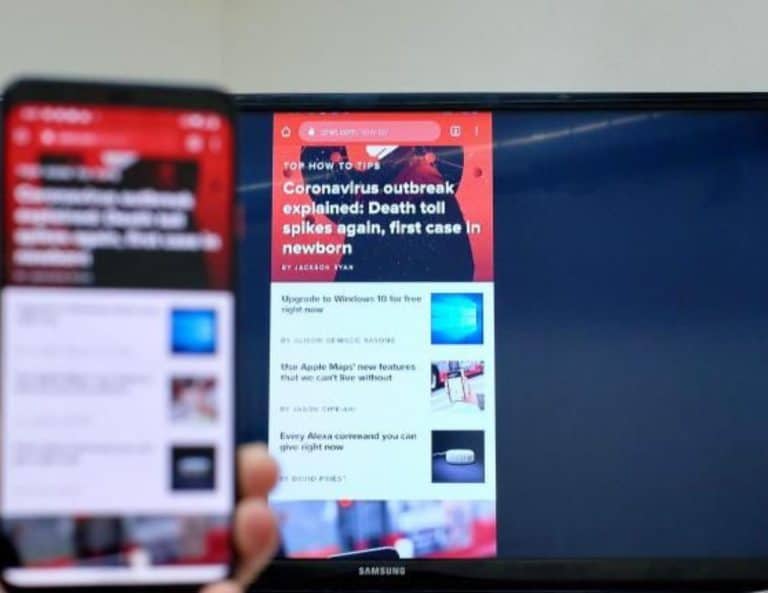Looking for an answer to why hotels charge per person?
If you’re short on time, here’s a quick answer to your question: Hotels charge per person to cover the cost of additional services, amenities, and resources provided to each guest.
In this article, we will delve deeper into the reasons behind this pricing structure, exploring factors such as room occupancy, amenities, and the overall guest experience.
By the end, you’ll have a better understanding of why hotels charge per person, and how it impacts your stay.
Room Occupancy and Resources
Hotels charge per person for various reasons, and one of the main factors is room occupancy. When determining room rates, hotels take into account the number of people staying in a room. This is because the more occupants a room has, the more resources and amenities are being utilized.
Determining Room Rates
Hotels often set their room rates based on the number of guests staying in a room. This is because additional guests require more resources and amenities, such as extra towels, toiletries, and bedding. By charging per person, hotels ensure that they are adequately compensated for the additional resources used to accommodate each guest.
For example, if a hotel charges $100 per night for a single occupancy room, they may charge an additional $50 per night for each additional guest. This helps cover the costs of providing extra amenities and services to accommodate the additional guests.
Additional Amenities and Services
Charging per person also allows hotels to account for the additional amenities and services provided to each guest. These can include breakfast, access to fitness facilities, Wi-Fi, and other perks that hotels offer to enhance the guest experience. By charging per person, hotels can ensure that all guests receive these amenities and services without incurring additional costs.
Hotels often strive to provide a comfortable and enjoyable stay for their guests, and charging per person helps them manage the resources needed to fulfill this goal.
Utility Costs and Housekeeping
In addition to amenities and services, hotels also need to consider utility costs and housekeeping when charging per person. The more people occupying a room, the higher the utility costs, such as water and electricity. Housekeeping expenses also increase with more guests, as more time and effort are required to clean and maintain the room.
By charging per person, hotels can ensure that these additional costs are accounted for and that each guest contributes to covering the expenses associated with their stay.
Guest Experience and Comfort
Hotels charging per person is a common practice that serves multiple purposes, all aimed at enhancing the guest experience and ensuring their comfort during their stay. By charging per person, hotels can effectively manage their resources and provide a higher level of service to each individual guest.
Ensuring Quality and Standards
Charging per person allows hotels to maintain their quality and standards consistently. This means that the amenities, facilities, and services provided by the hotel can cater to the needs and expectations of each guest. By charging per person, hotels can allocate adequate staff, maintain cleanliness, and regularly update their facilities to ensure a comfortable and satisfying stay for all guests.
Managing Crowded Spaces
Another reason hotels charge per person is to manage crowded spaces. When hotels charge based on the number of people staying in a room, it helps prevent overcrowding and maintain a comfortable environment for all guests. This ensures that common areas such as lobbies, dining areas, and recreational facilities are not overwhelmed by an excessive number of guests, allowing everyone to enjoy their stay without feeling cramped or inconvenienced.
Personalized Services and Attention
Charging per person also enables hotels to provide personalized services and attention to each guest. By knowing the exact number of guests, hotels can tailor their services accordingly, offering amenities and extras specifically for each individual. This level of personalization enhances the overall guest experience and creates a sense of exclusivity, making the stay more memorable and enjoyable for everyone.
Fairness and Revenue Management
Hotels often charge per person to ensure fairness in pricing and to effectively manage their revenue. This practice allows hotels to balance costs and revenue, maximize their revenue potential, and account for variable expenses.
Balancing Costs and Revenue
Charging per person helps hotels cover the costs associated with each guest’s stay. By charging based on the number of occupants, hotels can account for expenses such as additional bedding, toiletries, and utilities. This approach ensures that the hotel can maintain profitability while providing a comfortable experience for each guest.
Furthermore, charging per person allows hotels to allocate resources more efficiently. For example, if a room is occupied by multiple guests, the hotel can allocate additional staff to cater to their needs, resulting in a more personalized and satisfactory experience for each guest.
Maximizing Revenue Potential
By charging per person, hotels can maximize their revenue potential. This pricing strategy allows hotels to capture more revenue from groups or families traveling together. Instead of charging a flat rate for the room, charging per person enables hotels to generate additional revenue for each additional occupant. This approach is particularly beneficial during peak seasons or when the hotel has limited availability.
Moreover, charging per person incentivizes guests to book separate rooms if they prefer privacy, which can further boost the hotel’s revenue. This flexibility in pricing also allows hotels to cater to different types of travelers and accommodate their specific needs and preferences.
Accounting for Variable Expenses
Hotels face variable expenses based on the number of occupants. Charging per person allows hotels to account for these variable expenses more accurately. For example, the cost of providing breakfast or other amenities can vary depending on the number of guests in a room. By charging per person, hotels can adjust pricing to cover these additional expenses.
Additionally, charging per person helps hotels manage demand and optimize occupancy levels. During off-peak seasons, hotels may offer discounted rates to attract more guests. By charging per person, hotels can adjust pricing based on demand, ensuring that they can cover their costs while maximizing occupancy rates.
Industry Standards and Practices
When it comes to pricing in the hotel industry, there are several factors that contribute to why hotels charge per person. These factors are based on industry standards and practices that have been established over time.
Established Pricing Norms
One reason hotels charge per person is due to established pricing norms. Many hotels have adopted this pricing strategy as a way to accurately reflect the cost of providing amenities and services to each guest. By charging per person, hotels can better account for the resources used by each individual during their stay.
This pricing norm is particularly common in all-inclusive resorts, where guests have access to a wide range of amenities such as meals, drinks, and recreational facilities. Charging per person allows these resorts to factor in the cost of providing these services to each guest, ensuring a fair and sustainable business model.
Competitive Market Dynamics
Another reason hotels charge per person is due to competitive market dynamics. In a highly competitive industry like hospitality, hotels need to find ways to differentiate themselves and attract customers. By offering pricing options that cater to individual travelers as well as groups, hotels can effectively target a wider range of potential guests.
Charging per person also allows hotels to offer flexibility in pricing. For example, if a group of friends or family members wants to share a room, charging per person can be more cost-effective than charging a flat rate for the entire room. This pricing strategy appeals to budget-conscious travelers and can give hotels a competitive edge in the market.
Economic Factors
Lastly, economic factors play a role in why hotels charge per person. Running a hotel involves various costs, including staffing, maintenance, utilities, and more. By charging per person, hotels can ensure that their revenue is aligned with the number of guests they accommodate.
Additionally, charging per person allows hotels to adjust their pricing based on demand. During peak travel seasons or events, hotels may increase their rates per person to maximize revenue. Conversely, during slower periods, hotels may offer discounted rates to attract more guests. This dynamic pricing strategy helps hotels optimize their occupancy rates and revenue streams.
Factors Affecting Per Person Charges
Seasonal Demand and Occupancy
One of the key factors that influence hotels to charge per person is the seasonal demand and occupancy rate. During peak seasons, such as holidays or popular events, hotels experience higher demand for their rooms. In order to maximize their profits, hotels may implement per person charges to accommodate the increased demand and ensure that all guests have a fair chance to secure a room. This pricing strategy helps hotels manage their occupancy levels and prevent overcrowding, ensuring a pleasant and comfortable stay for all guests.
Room Types and Sizes
The type and size of the room also play a significant role in determining per person charges. Hotels offer a variety of room types, ranging from standard rooms to suites, each with different amenities and sizes. Rooms with larger capacities, such as family rooms or suites, often come at a higher cost per person due to the additional space and amenities provided. This allows hotels to cater to different guest preferences and accommodate varying group sizes, while still ensuring a fair pricing structure.
Location and Local Attractions
The location of a hotel and its proximity to local attractions can also impact per person charges. Hotels situated in popular tourist destinations or cities with high demand often have higher operating costs, including rent and utilities. In order to cover these expenses and maintain profitability, hotels may charge per person to ensure fair pricing. Additionally, hotels located near popular attractions or landmarks may incorporate the cost of access to these attractions into their per person charges, providing added convenience and value to guests.
It’s worth noting that these factors can vary from hotel to hotel, and it’s always a good idea to check the specific policies and pricing structure of a hotel before making a reservation. Websites like Booking.com or Expedia.com can provide detailed information about hotels, including their pricing policies and guest reviews, helping you make an informed decision.
Conclusion
In conclusion, hotels charge per person to cover the costs associated with providing additional services, amenities, and resources to each guest.
This pricing structure ensures fairness, helps manage guest comfort and experience, and enables hotels to effectively balance costs and revenue.
Understanding the reasons behind per person charges can help you make informed decisions when booking accommodations and enhance your overall travel experience.
Next time you encounter this pricing model, you’ll have a better understanding of why it’s in place and how it benefits both the hotel and the guests.






